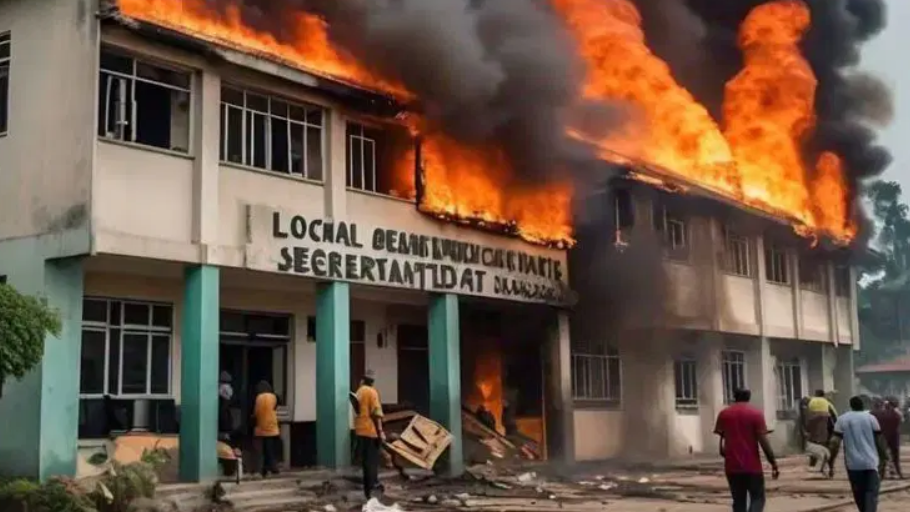In a recent interview, Nyesom Wike, the Federal Capital Territory Minister, leveled serious accusations against Rivers State Governor Siminalayi Fubara, claiming he incited violence in the state following the controversial Local Government elections that took place on October 5, 2024. Wike’s assertions stem from the belief that Fubara acted defiantly by disregarding a Federal High Court ruling which prohibited the elections. This ruling was founded on procedural violations by the Rivers State Independent Electoral Commission, specifically concerning issues with voter registration. Wike argues that the governor’s actions essentially led to a breakdown of law and order within the state.
The aftermath of the elections has been marred by significant unrest, including cases of arson where local government secretariats were set ablaze. This chaos ensued when the Inspector General of Police ordered the withdrawal of police personnel from the area, arguably intensifying the already volatile situation. Wike did not mince words, categorically stating that “Governor Siminalayi Fubara is the architect of the violence,” thereby placing the blame firmly on the governor for the escalation of hostilities among the populace.
Wike’s commentary reflects a broader concern regarding the integrity and procedural compliance of electoral processes in Nigeria. His criticism is directed at the perceived failure of the Rivers State Independent Electoral Commission to adhere to established guidelines, which not only undermines the legitimacy of the election but also heightens tensions among competing political factions. Therefore, Wike’s accusations can be seen as part of a larger narrative calling for accountability and adherence to legal standards within the political framework of the state.
Furthermore, the violence that erupted following the elections points to a disturbing trend in local governance, whereby electoral disputes breed unrest and lawlessness. Wike’s assertion that Fubara’s actions precipitated this violence may resonate with citizens who are weary of politically motivated violence and seek a government that honors legal precedents. The implications of such unrest can be far-reaching, affecting not just local governance but also the social and economic stability of the region, as citizens grapple with issues of safety and access to essential services.
In the context of Nigerian politics, the situation is indicative of a fractured democratic system where the rule of law can often be overshadowed by political machinations. Wike’s allegations highlight the urgent need for reforms in Nigeria’s electoral framework, particularly in ensuring that electoral bodies operate with transparency and accountability. Such reforms are necessary to restore public confidence in the electoral process and to safeguard against the kind of political violence that has been observed in Rivers State.
As the situation continues to unfold, it is crucial for stakeholders, including federal authorities and civil society organizations, to address these tensions constructively. Ensuring that electoral processes are respected and that any grievances are handled through appropriate legal channels is imperative in restoring peace and order in Rivers State. The ongoing dialogue, as exemplified by Wike’s remarks, underscores the necessity for a collective commitment to uphold democratic principles that foster a stable and peaceful political environment.














